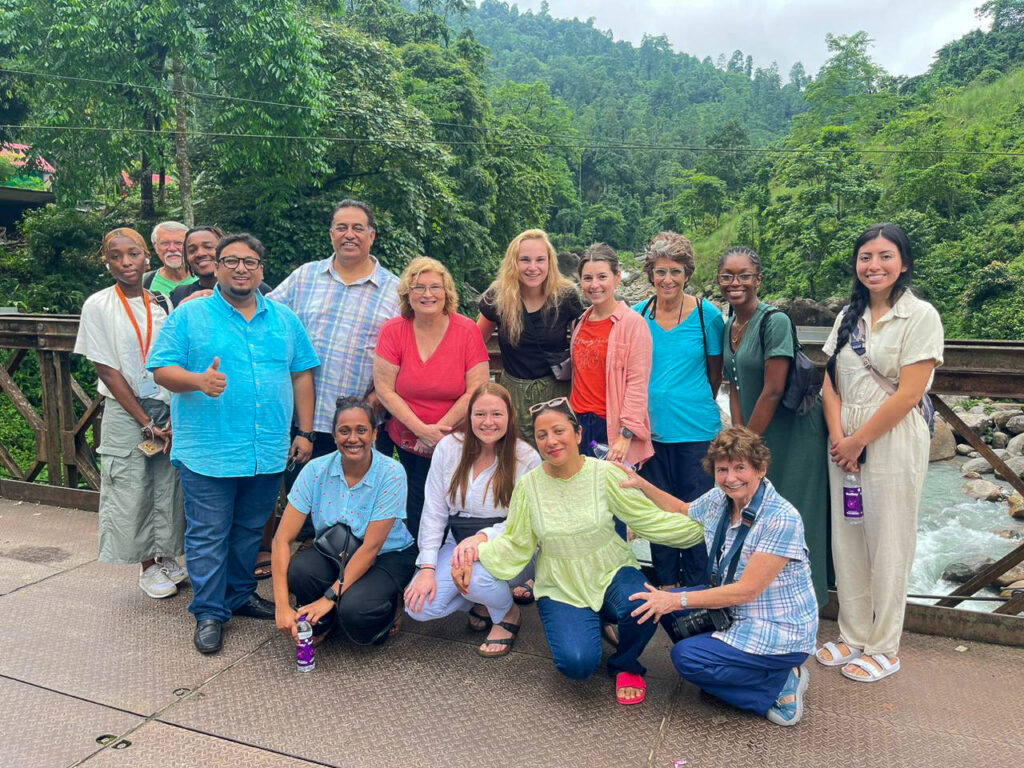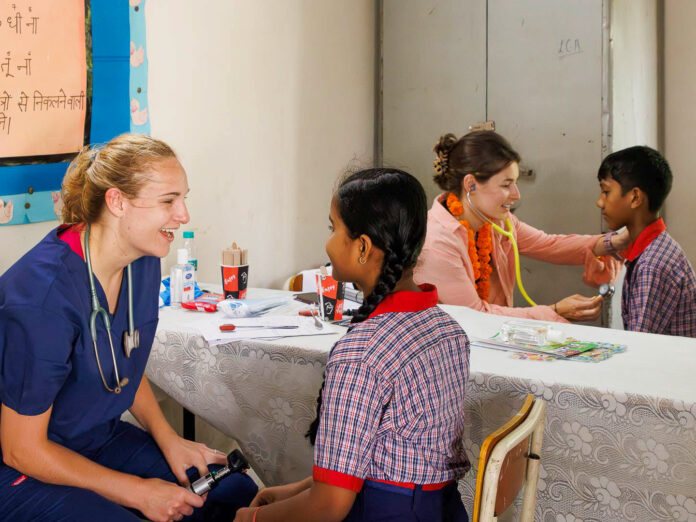
A small team of Mercerians provided health screenings and education to nearly 1,000 residents in India this summer.
Dr. Stephanie Bennett, clinical assistant professor in the College of Nursing, and Dr. Sara Mitchell, clinical associate professor emeritus, led seven Mercer students on the third Mercer On Mission trip to India. Held July 26-Aug. 15, it was the last of 15 Mercer On Mission trips held across the globe this summer. Plans are in the works now for a 2024 trip to India.
Dr. Bennett was inspired to create the program after going on a medical mission trip to India with her church, and the first Mercer trip was held in 2018. Four nurse practitioner students, two pharmacy students and one pre-nursing undergraduate student participated.
The Mercerians spent half their time in the inner city of Delhi and the rest of their time in rural northeastern India.
“There’s so much need everywhere,” Dr. Bennett said. “The needs are great in the city, but in rural India, not only do they not have hardly any services, they have very limited health education. I thought it gave a whole other perspective for the students but also for the people we serve there. Nobody ever goes to work with them.”
At Life Centre Academy in Delhi, the Mercerians provided hygiene classes and well-child checks for 350 children and first aid training for the teachers. They also did community health screenings and clinics for residents, including women from the so-called “red-light district” in the northeast who had been rescued or were still involved in sex trafficking. In addition, they gave health education classes for mothers that focused on feminine hygiene. They distributed medicines, reading glasses and other supplies and coordinated referrals to health providers when significant conditions were identified.
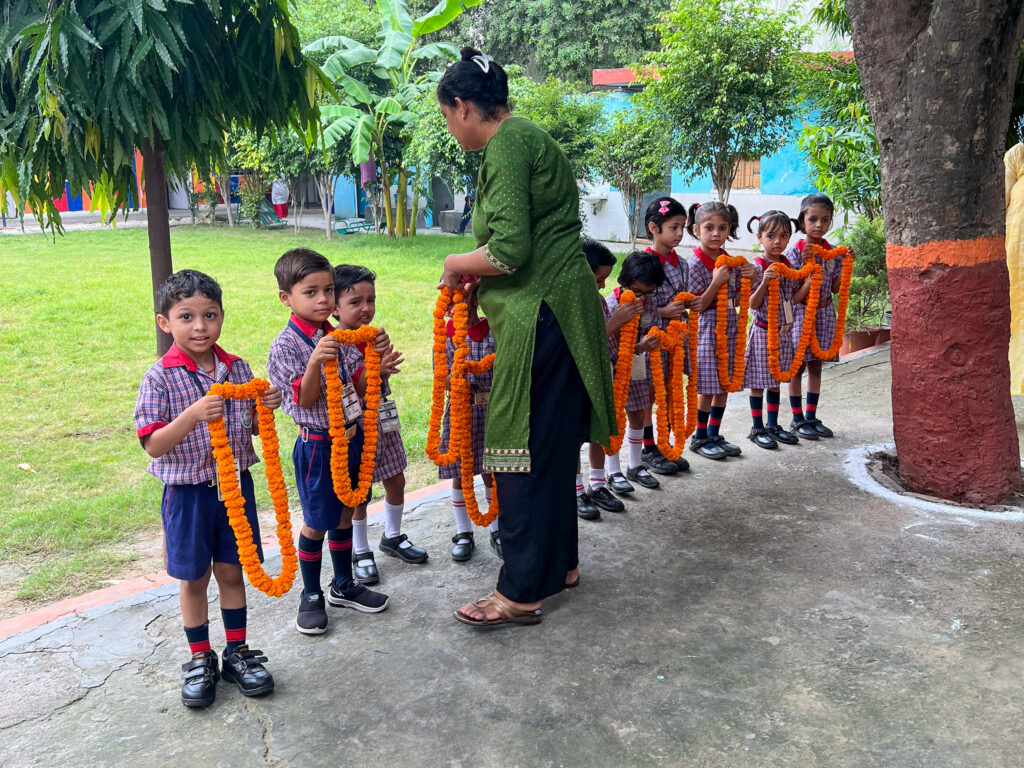
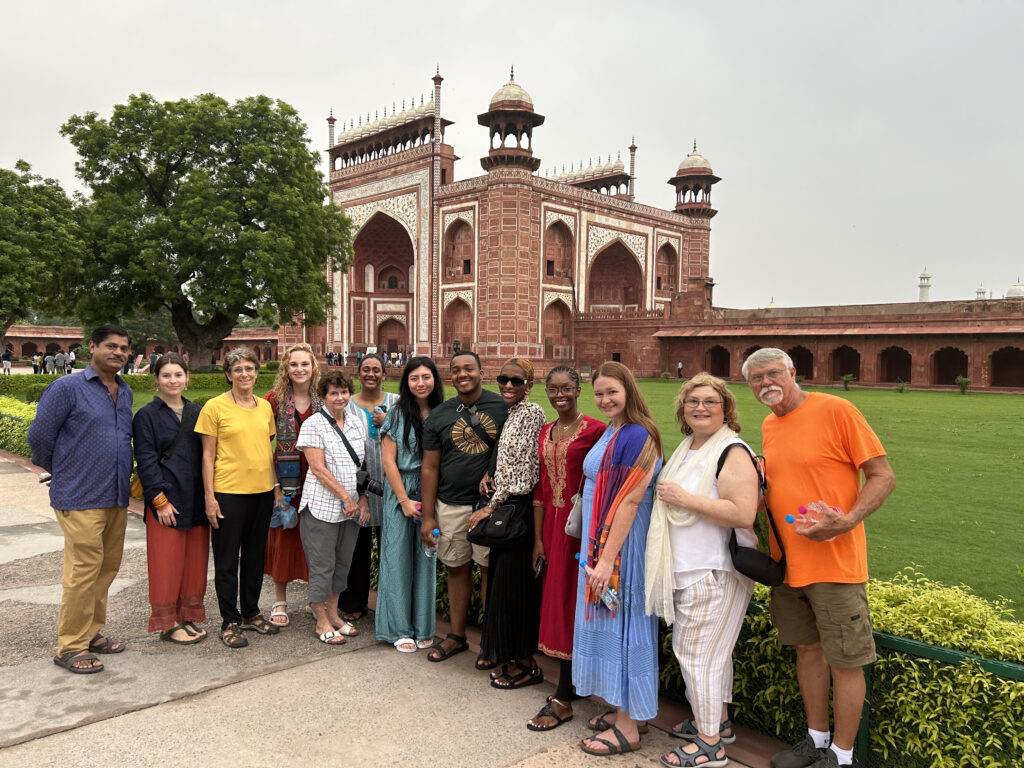
“It’s really a cultural immersion,” Dr. Bennett said. “(Students) got to hone their clinical skills, but I think one of the biggest things is meeting a need that’s not being met and working with such a huge underserved population and working in such extreme poverty. (They developed) a heart for these underserved populations who don’t have the care but also don’t have the knowledge.”
Emily Bennett, a fourth-year pharmacy student, said she chose to attend Mercer’s College of Pharmacy because of the opportunity to participate in projects like Mercer On Mission, since she is interested in pursuing mission work in her career. In India, she gained cultural competence as well as confidence as a pharmacist, since medication questions were directed to her.
“I feel like having this experience while in pharmacy school will help me to lead my own mission trip or work on medical mission trips in the future,” she said. “One thing I took away is just how blessed we are in America.”
The Mercer students gained valuable experience as they worked alongside local health care workers at the clinics, collaborated with translators, and made connections with the communities, Dr. Bennett said.
Madison Stinson, a third-year student in the Bachelor of Science in Nursing to Doctor of Nursing Practice with Family Nurse Practitioner program, said she gained hands-on experience and learned quickly as she served in the role of a health provider. She also conducted a needs assessment related to childhood and maternal nutrition for her doctoral project during the trip.
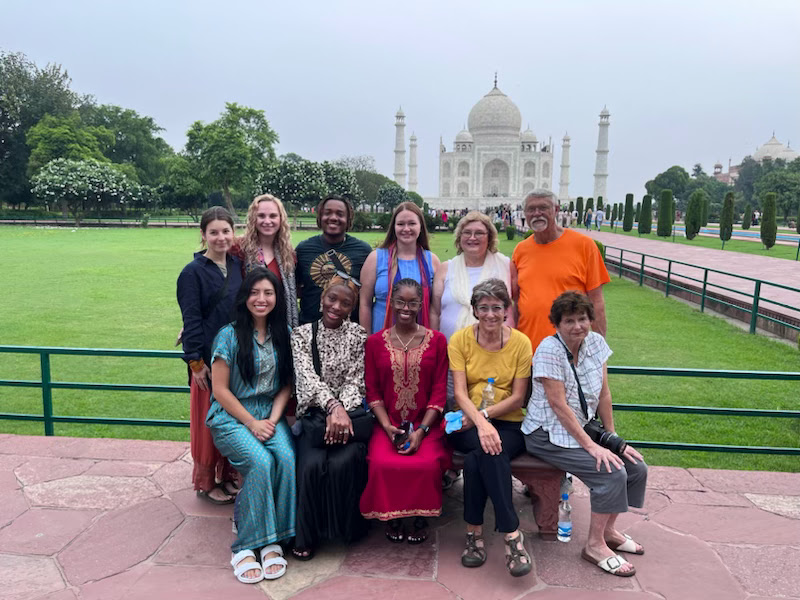
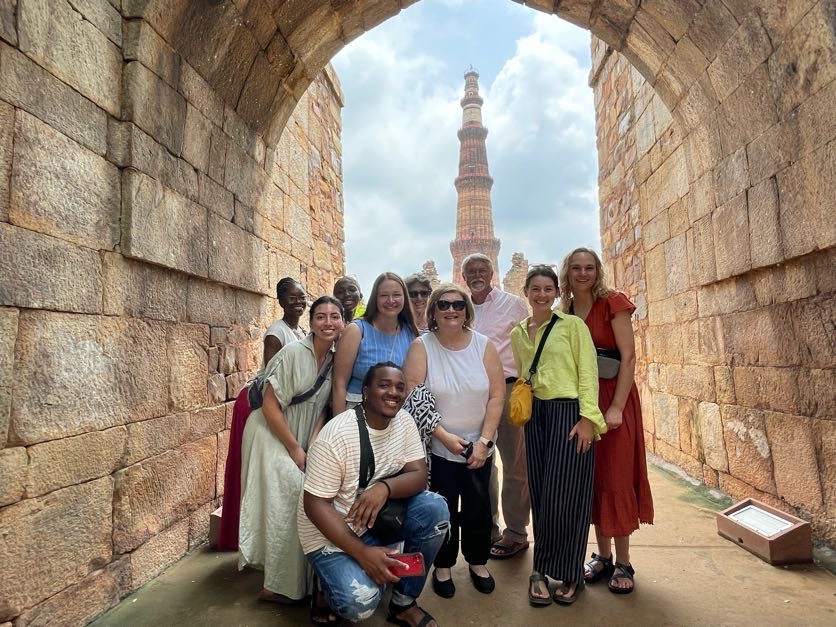
Most of the children the Mercer group saw in their clinics were malnourished, and many of the women were severely anemic, Stinson said. She talked with women in Delhi and visited some of their homes and markets to get a better understanding of food preparation, and she gave a nutrition presentation for a group of mothers. Stinson said the goal is for this nutrition education work to continue on future Mercer On Mission trips.
“Just the opportunity to serve in a capacity that they’ve not had before, it gives (students) a whole different insight,” Dr. Mitchell said. “Until you do something like that, you really don’t appreciate how blessed you are. I think it’s an extremely eye-opening circumstance. You learn more about yourself.”
Dr. Mitchell said the Mercer group served some of the same women they had met on previous trips, which showed the trust they had built with them. Those women helped reassure their peers when it came to the health information and supplies the Mercer team shared.
“That was really humbling, to think the families in the community began to look to us for resources,” Dr. Mitchell said.
Dr. Bennett said the local residents went out of their way to make the Mercerians feel comfortable and showed so much gratitude. The children at Life Centre Academy presented the Mercer team with fresh flower leis upon their arrival and small handmade gifts at the end of their trip, Dr. Mitchell said. Stinson said each woman whose home she visited offered her a snack, drink or small token of appreciation.
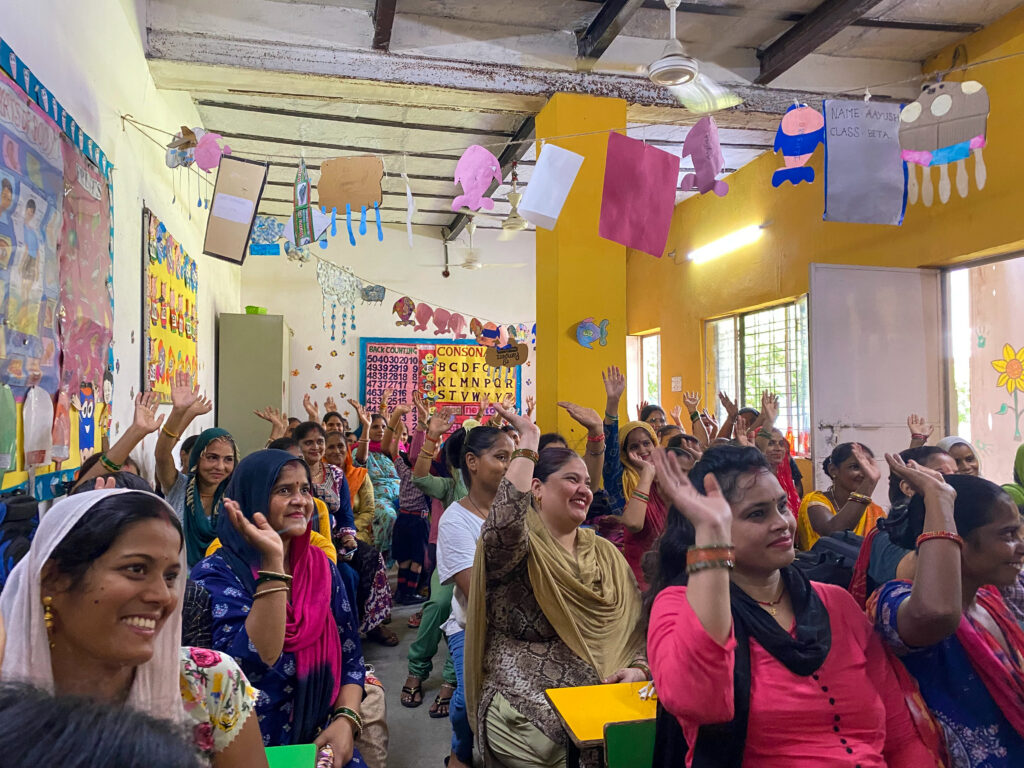
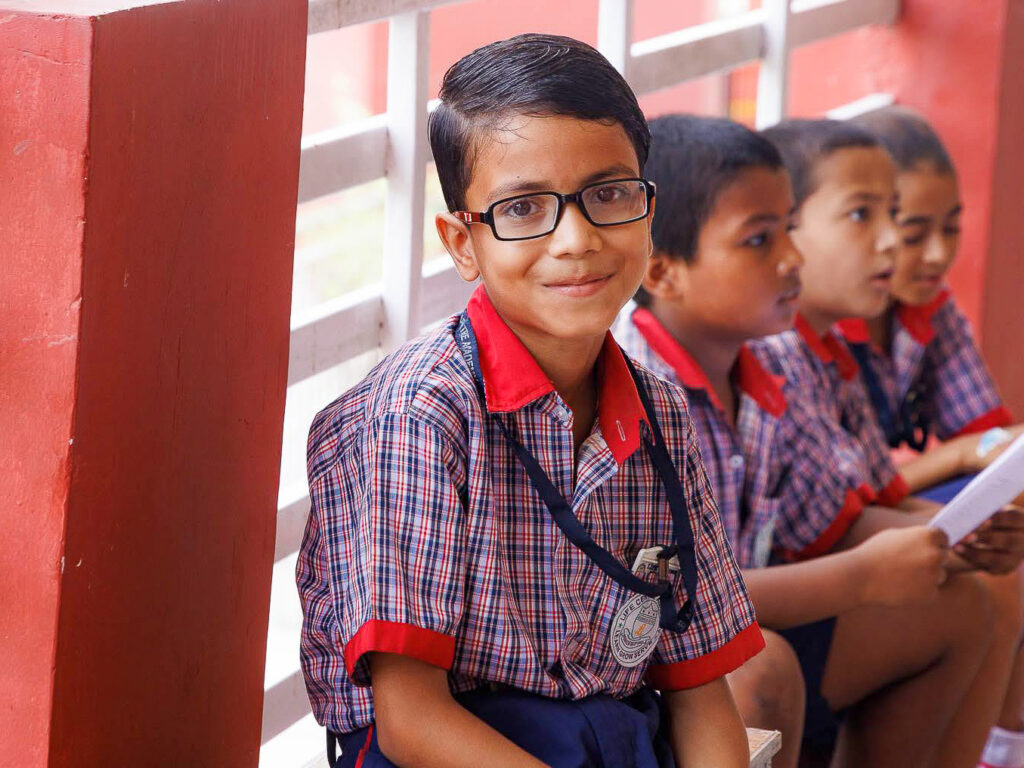
“That cost them money they don’t really have,” Dr. Mitchell said. “The fact that they wanted and chose to do that was very humbling because they don’t have excess. Their mindset was to give. Everywhere we went that we did some sort of ministry, the people we were working with did twice as much for us.”
Stinson said working with the women from the red-light district was particularly impactful to her. The women were so thankful to have people who were willing to talk and listen to them and help them with some of their problems.
She formed a bond with a 17-year-old girl who had been rescued from sex trafficking a few weeks prior. Stinson realized the girl was suffering from severe anxiety and post-traumatic stress disorder from her traumatic experiences.
“I really felt like that was one of the times that I made a little bit of a difference,” Stinson said. “The people there are just incredibly kind. It just felt like a home when we got there. They were so welcoming. We were just trying to support them in the best way that we could.”
Outside their work, the Mercerians had a little time for sightseeing. They visited the Taj Mahal, a Buddhist temple, waterfalls in the countryside, and an area on the outskirts of the Himalayan Mountains; went on a safari; and experienced the street markets.
“It’s a great trip. It’s got so many pieces of it. I think they get so much out of three weeks,” Dr. Bennett said.
